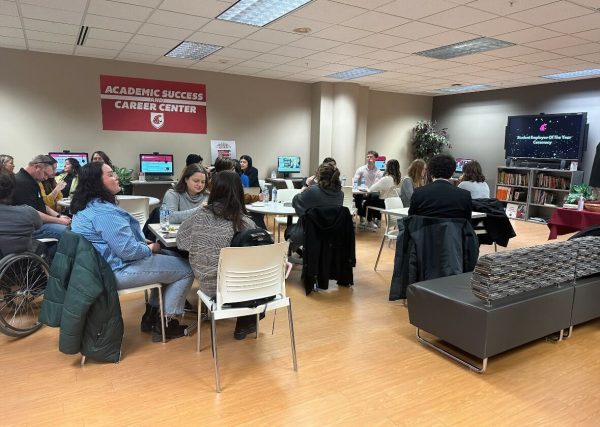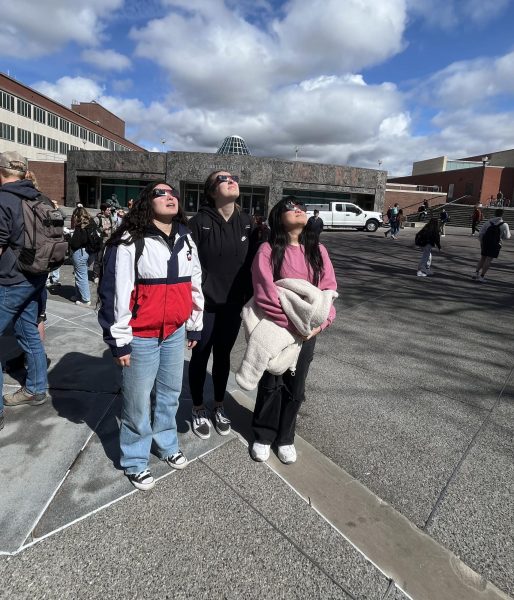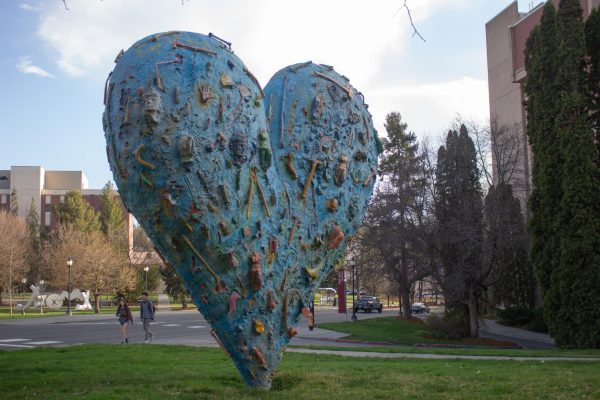Fighting the stereotypes: why men don’t report sexual assault
March 7, 2014
Sexual assault is one of the most underreported crimes in the nation, and the numbers decrease alarmingly when the victim is male, local experts say.
Cultural stigmas that men cannot be raped, skewed mindsets about masculinity, and fear of such labels play large roles in the aftermath of such crimes.
Men and boys are not immune to sexual assault. Dean of Students Melynda Huskey and Violence Prevention Coordinator Nikki Finnestead both pointed out that students need to know their options. Those wanting to keep the information about the experience confidential could refer to counseling services or ATVP.
One organization, The 1 in 6, helps men who have experienced unwanted or abusive sexual encounters. The organization’s studies have shown that between 14 and 16 percent of males were sexually abused before they turned 18.
However, even when knowing there are people out there to help, it can become difficult for men to reach out and find someone to talk to. Pullman is a small town community, so the mindset is that “everybody knows everybody,” said Emilie McLarnan, the assistant director of Alternatives to Violence of the Palouse (ATVP). This makes it even more difficult for anyone to come forward.
The assault victim may feel that if he even tells his friend that he will not be believed or taken seriously, Finnestead said. Fears like this make the difference between the statistics of assaults that happen and those actually reported.
To combat the fear of disbelief, the Cougs Helping Cougs group was created. This new group that teaches students how to help if a friend comes to them to talk about a sexual assault, following the guidelines to listen, believe and support the friend, Finnestead said.
Perhaps some may not believe that men can be sexually assaulted because they believe men don’t have the potential to be victimized and assaulted, Huskey said. There is a social stigma in our culture that declares a man has no masculinity if he can’t protect himself. This makes the experience even more painful if the male victim is assaulted by another male, she said.
“The way that masculinity is portrayed in our society is that men don’t let people hurt them,” McLarnan said.
One of the most common reasons victims won’t come forward is the fear of being blamed for what happened to them, Huskey said. There are people who have a victim-blaming mindset and believe a male who has been assaulted shouldn’t have been in that situation or should have been able to protect himself, she said.
Everyone’s journey is different, McLarnan said. When victims call the ATVP hotline or meet with an advocate, it’s hard to predict how males will react. Distinguishing between a common female and male’s reaction is difficult.
“I would guess they’re maybe hesitant to call in fear of reaction,” McLarnan said.
Most of the cases of male sexual assault happen to children. Because of the lasting impact of child abuse, McLarnan said it’s hard to say if the impact is worse when it happens to children or adults.
“For a lot of people, when they hear how many boys are sexually abused it really opens their eyes,” McLarnan said.
WSU offers numerous programs for education on the subject and organizations that victims can turn to for help. Such groups include Counseling and Testing Services, Health and Wellness Services, and Office of Student Standards and Accountability.
These groups follow the standards of Title IX, a federal program that labels sexual assault as a form of discrimination. Along with on-campus organizations, students also have the options to go to the Pullman Police or Alternatives to Violence of the Palouse (ATVP), to report an assault or to call someone.
Huskey said if it is discovered that if someone violates the Title IX policy, the case is referred to the Office of Student Standards and Accountability. This applies to the victim and the assailant, no matter what the gender.
“Title IX is not designed to protect women,” Melynda said. “It’s meant to protect everyone against gender discrimination.”





















